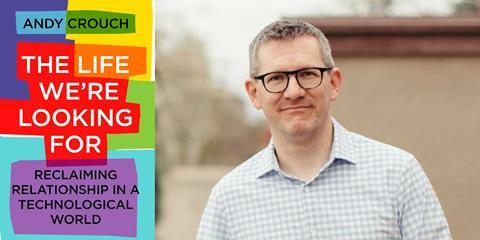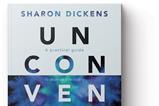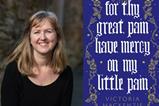Andy Crouch doesn’t advocate ditching your electronic gadgets. We just need to use them differently, he says

This could very well be the book you’ve been looking for.
Many authors have tried, in recent years, to diagnose our current malaise, and to signpost a way out of it. None have succeeded so comprehensively and accessibly as Andy Crouch in his outstanding new book The Life We’re Looking For.
In part, this is because of the breadth of topics he has given himself to thinking deeply about over decades. Technology, theology, disability, music, relationships, and the gods of this age, to name but a few. He introduces us to our world and our inner workings as one who sees them and knows them well. He is a man who pays attention – and he calls us to do the same.
Attention is one of the things he notes that we moderns, in the thrall of the god he identifies as Mammon, are quick to surrender for the sake of results. Attention takes time and effort. We have been relentlessly training our brains away from it since at least the invention of the smartphone. This is no new observation. Where it goes deeper is in Crouch’s analysis of what we’re searching for in our endless scrolling and swiping. We’re looking, he says, for recognition and for magic.
Recognition is the first thing we seek when we enter this world. As soon as a newborn opens her eyes, she begins searching for a face. When she finds it, she and her mother – or whoever takes on her care – gaze at one another, content to do nothing but take each other in. We are all born with this innate need to be seen and known, recognised, named, and loved.
Yet as time goes on, attention, rightly, gets divided from the infant and she has to learn to occupy herself. Enter the screen. Screens give us a simulation of the undivided attention we crave. They are always ready (given appropriate battery management) to meet our gaze and soothe our every need. Or so they would have us believe.
Yet what our screens and multiple other devices offer, Crouch explains, is not designed to meet our needs. It is designed to keep us hungry for more – to promise the world and give us just enough to keep us coming back, although we know it never satisfies.
What we’re looking for in our devices is magic, or superpowers. Maximum power with minimum effort. “Abundance without dependence.”
The cost, Crouch says, is to our very humanity. We were not made to have superpowers. We were created as “heart-soul-mind-strength complexes designed for love”. We “[come] most fully alive when we are in relationships of mutual dependence and trust.” Yet far too many of us spend our days as distant from one another as possible, even while in the same room, glued to our screens, seeking cheap thrills in place of the harder but deeper joys of real person-to-person interaction.
Unlike many thinkers on these topics, though, Crouch doesn’t urge us all to ditch our mobile phones and other electronic gadgets. Rather, he suggests we learn to use them as instruments, not devices.
An instrument, in Crouch’s understanding, is something that enhances our heart-soul-mind-strength nature, rather than diminishing it. It enables us to create, to explore, to learn and to grow. It encourages us to engage with others and to move through the world. It requires more of us – as playing the piano requires more than listening to a CD – but it also gives more to us. It helps us grow in every facet of God’s design. It exercises our hearts, souls, minds and bodies. In doing so, it tires them, but it also strengthens them and brings a far deeper satisfaction.
And this learning and growing and strengthening must be done in community, not least so that we never forget that our value is found, not in our strength or our ability or our efficiency, but in our humanity alone. The world – the god Mammon – wants us to be efficient and effective consumers and producers. Christ calls us to be loving brothers and sisters – those who care for the weak, the vulnerable and the “unuseful”.
Crouch suggests that the way to start taking steps out of the one world and into the other is to form “households”. These, he explains, are places “where we can invest ourselves deeply in others, come to care about their flourishing, and give ourselves away in mutual service and sacrifice in ways that secure our own identities instead of erasing them.” These households may include families, but are not limited to them. They will require us to surrender much of our autonomy and independence, those things that we in the West consider more sacred than almost anything else. The prospect is scary, but it is biblical, and may just be the only way we will ever find the full, fruitful, flourishing life we’re looking for.






































